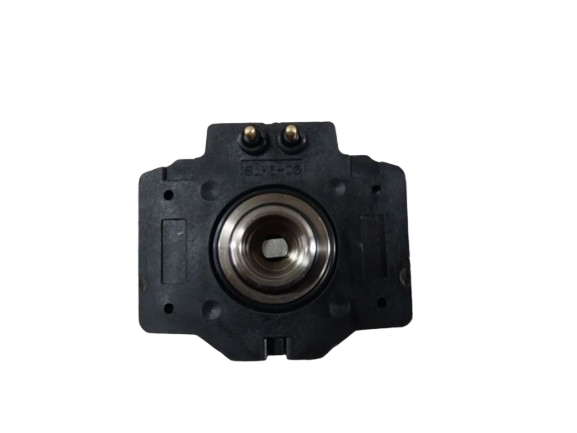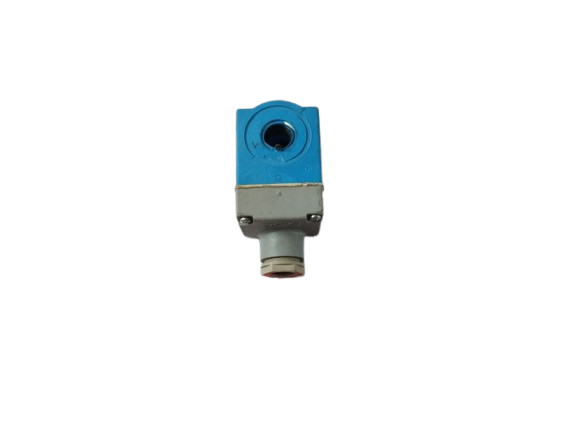In marine automation, efficient and reliable operation of systems within ships is very important. One such fundamental part in this process involves the coil. From motor control to current regulation, coils have been widely used in many applications, and they constitute the core of most critical systems in marine automation. This blog explains the top benefits that high-quality coils should provide when investing in marine automation. It sheds light on why investment in quality is important for ship operators and engineers.
What Are Coils in Marine Automation?

Having understood all of this, it's first crucial to understand just what a coil is in the context of marine automation in order to properly understand the benefits that we will discuss. Basically, an electromagnetic coil is a wire coiled or helically wound. It may be made of copper, aluminium, or another metal conductor. In the case of carrying an electric current, the coil produces a magnetic field. The function of the coil is found in controlling many appliances and systems, such as motors, solenoids, relays, and transformers.
In marine automation, coils are used with various electrical devices that help in the control of operations to include:
- Contactors Coils: They are used in controlling the supply of electricity to a motor or other high-power equipment.
- Relay Coils: They help in acting or deactivating circuits on some conditions.
- Solenoid Coils: These coils are utilized in activating mechanical devices including valves and brakes in a marine system.
- Transformer Coils: This is used in stepping up or stepping down voltages in an electrical circuit.
1. High Reliability under Harsh Marine Environments
One of the advantages a quality coil provides in marine automation is that it offers a long life under difficult marine conditions. Though ships are subjected to various conditions, from high humidity and saltwater exposure to changes in temperature and more, these factors can adversely affect the electrical components, including coils, installed inside the ship.
Well manufactured coils are designed to withstand the corrosive effects of saltwater, moisture, and extreme changes in temperature. They are often made of corrosion-resistant materials, such as enameled copper wire or specialized coatings, to ensure longevity. If a vessel is properly designed with a quality coil, the system is unlikely to fail the vessel due to environmental factors, ensuring the system will operate safely throughout the life of the vessel.
Benefit: Reduced maintenance costs and fewer breakdowns due to environmental damage.
2. Efficiency and Performance
An automated system in its completeness needs efficiency. Quality coils have resulted in the overall improvement of marine automation in terms of current flow and low loses in terms of energy. A well-crafted coil has lesser resistance to current flow, implying it minimizes the heating effect hence saving energy.
Better-performance coils optimize energy use in marine automation where power consumption happens to be an overall concern. Efficient coils ensure the smoothening of operations critical systems and thus reduce the load on generators and engines, which would subsequently lead to fuel savings.
Benefit: Reduced fuel; better energy efficiency; overall system performance
3. Increased Safety and Reliability
Coiling is an important safety item in the field of marine. If a coil fails in a critical system, it can cause malfunctions in equipment, fires, or even ruinous failure. High-quality coils ensure the system remains safe as they are built with higher reliability in all marine automation systems.
Since quality coils are optimized to with any short circuit, overload, or other electrical fault, they are also equipped with advanced insulation techniques that ensure there is no leakage of electricity for any dangerous situation. In addition to that, these coils are intensively tested so that they can maintain operation within specified safe parameters, thereby lessening the risk of system failure.
Benefit: Reducing stress on the crew and the vessel by increasing safety from potential electrical failures.
4. Longer Lifespan and Reduced Maintenance
Another important feature of high-quality coils in marine automation is that they have a much longer life span. The poor quality of coils would start to give up more rapidly due to harsh conditions and hot temperatures involved, then call for more frequent replacement. But quality coils are built to last longer, even in harsher demanding marine environments.
Quality coils, which have a longer life as compared to ordinary coils, do not replace often. The coils are replaced less frequently because they do not break often. This situation leads to reduced downtime since the vessel operates more for extended periods without maintenance. This is an advantage to shipping companies and fleet operators as there is a reduction in general operational costs.
Benefit: Longer-lasting coils mean a lower rate of replacement, hence saving time and money in terms of maintenance.
5. Better Heat Dissipation
Coils also produce heat as electricity flows through them, although excessive heat will result in inefficiencies or destruction if allowed to accumulate without proper regulation. Only high-quality coils should be used-they are designed particularly for superior heat dissipation properties, transferring the excess heat away from the coil.

This is especially important in marine automation, as systems are often continuously running or under heavy loads. Quality coils are made to cool down adequately so that there is no resultant overheating that may cause damage to the coil and its adjacent components.
Benefit: Better heat management results in a minimal chance of overheating, thus less risk of system instability.
6. Faster Response Time
Fast, accurate response times are critical for smooth operation of certain types of marine automation systems. Whether it is motor timing control or activation of a valve, quick responses make the difference between complete success and premature system failure. High-quality coils contribute to faster response times in high-quality operations by providing more reliable activation and deactivation of the electrical circuits.
For instance, in solenoid-operated valves, good coils react appropriately and quickly open and close the valves with adequate fluid system control. Better coils ensure quicker switching action for contactors and relays, a requirement in correct operation of control machinery and on-board processes.
Benefit: Enhanced responsiveness of automation systems leads to better control and accuracy.
7. Reduced Electromagnetic Interference (EMI)
EMI is one of the major problems in marine automation systems, especially where several electrical devices and communication systems are operating together at various times. Several coils that have poor quality can produce a lot of EMI interference, which will interfere with the operations of other nearby systems or cause failures in communication.
High-quality coils are designed with better materials and shielding techniques to minimize EMI, thereby also maintaining the integrity of the electrical system and onboard communication networks. Decreased EMI means that marine automation systems can work without being disrupted or interfered with by other equipment on the vessel.
Benefit: Lower EMI improves the reliability of communication and other sensitive systems.
8. Marine Industry Standards Compliance
The maritime industry is strictly controlled to ensure safety and environmental sustainability. Coils used in marine automation are manufactured with the required standards and certifications that the industry demands, such as ISO 9001, IEC, and UL. Such certification requirements of the coils will meet performance, safety, and environmental standards, which gives comfort to operators and fleet managers.
Also, the use of coils that comply with these requirements will help in avoiding penalties or legal suits in case the vessels are found not to meet the set international standards.
Benefits: Industry-compliant vessels ensure legality and regulatory compliance.
9. Customizing for Specialized Marine Requirements
Marine automation often require coils designed to meet the specific needs of a given vessel or application. High-quality coils are customizable, allowing manufacturers to fit the design to specific performance criteria, size requirements, or environmental conditions. This results in ensuring that the coil is the best functioning within the constraints of that specific automation system.
Whatever be the specific requirements, such as specific voltages, high currents, or extreme temperatures, the right coil manufacturers can make coils to meet the very criteria. Such design ensures the coil will be totally integrated into the system and work at its best.
Benefit: Custom solutions for unique marine automation needs ensure optimum performance and integration.
In marine automation, the quality of components can significantly impact the reliability, efficiency, and safety of the entire system. Coils, in particular, play a critical role in controlling electrical flow, powering motors, and ensuring the smooth operation of various devices. By choosing high-quality coils, marine operators can benefit from enhanced durability, improved efficiency, longer lifespans, better heat dissipation, and reduced maintenance costs. Investing in quality coils not only helps optimize system performance but also contributes to the overall safety and success of marine operations. Whether it's reducing the risk of failures, improving energy efficiency, or ensuring compliance with industry standards, high-quality coils are an essential component of modern marine automation systems.


Validate your login
Sign In
Create New Account